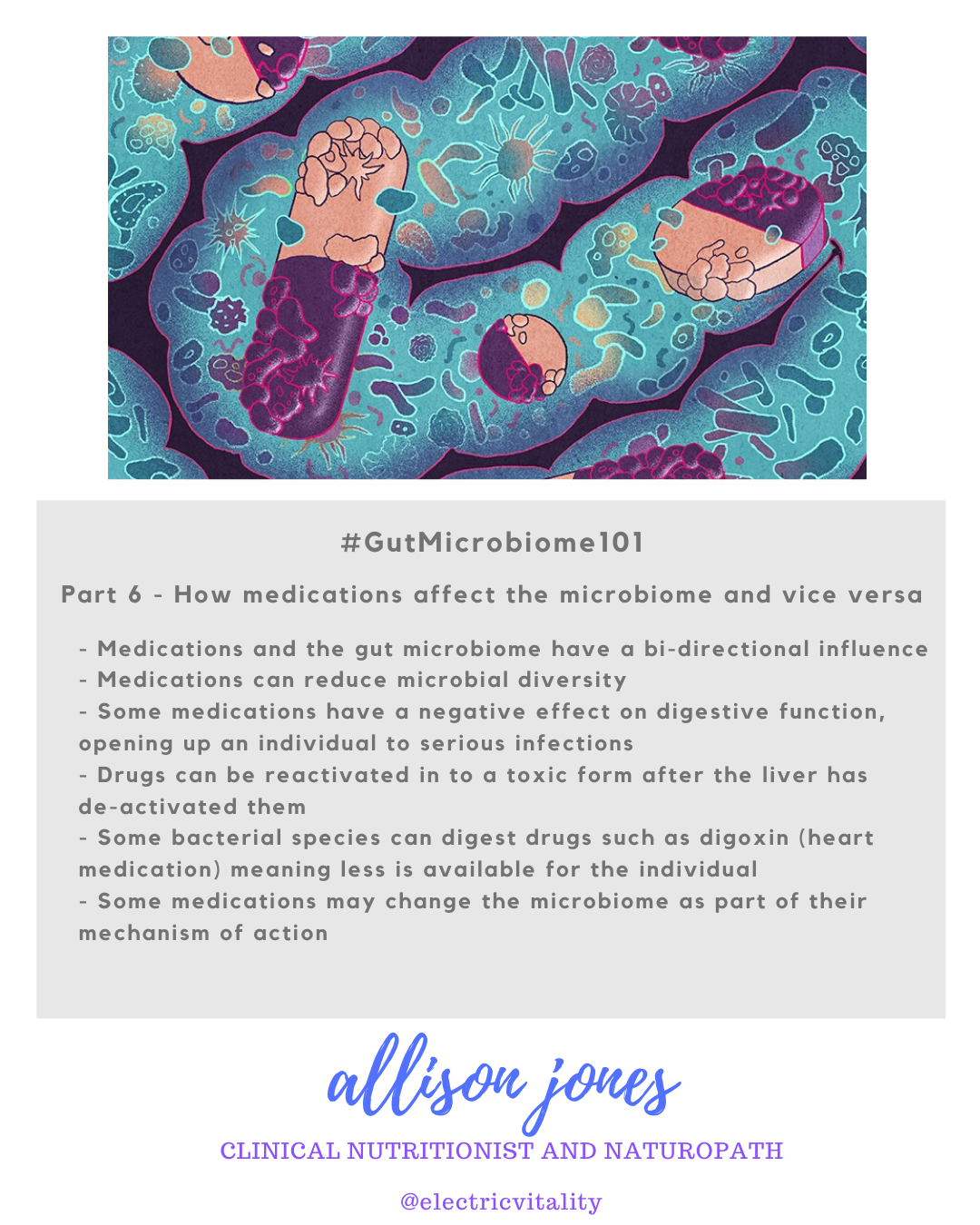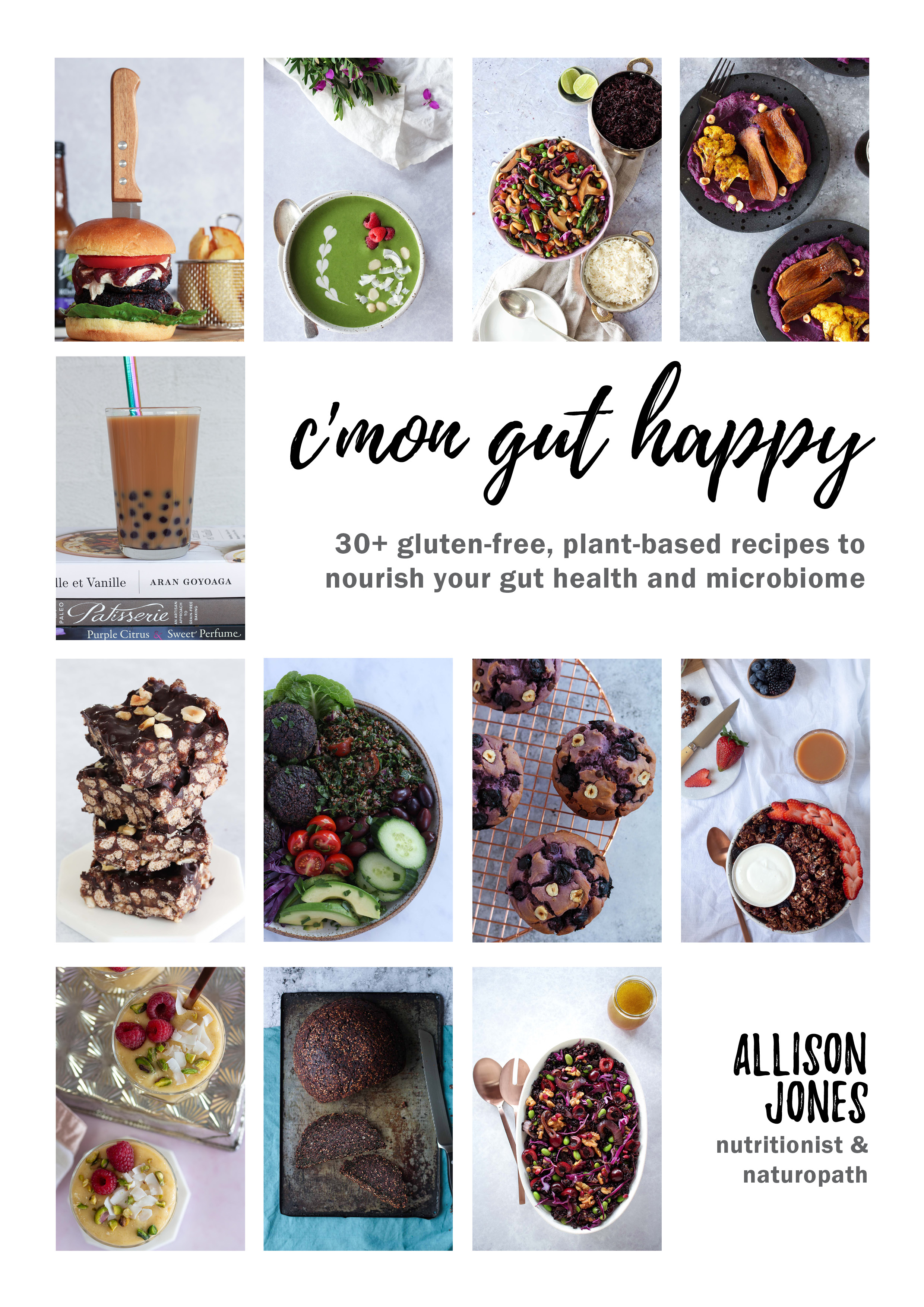In this, part 6 of the Gut Microbiome 101 series, we will look at how medications affect the microbiome and vice versa.
In the previous post of this series, I summarised the various factors that influence the microbiome over an individual's lifetime. Now, it's time to look at those factors in more detail. First up, medication.
It’s interesting to know that the relationship between medications and gut bacteria is bi-directional. Medications can influence the composition of the microbiome and gut bacteria can modulate drug efficacy and toxicity. This means that the effectiveness of medication may be partly, or largely, due to the individual’s existing microbiome composition and also due to changes the medications make to the microbiome. Research is currently attempting to understand the reasons behind this complex relationship so as to better inform individual prescribing or to develop better medications.
Important - please do not make any changes to your medications without first discussing with your doctor.
Recent research has shown that around one quarter of non-antibiotic medications affect the microbiome – many in a negative fashion, but also some in a positive way. This is quite astounding and has significant implications when assessing medication side effects. It means that many classes of medications have antibiotic-like effects and may be contributing to the documented decrease in microbial diversity found in modern western societies.
It’s believed that research findings take up to 20 years to filter down to the clinical setting between doctor and patient – which is why I strongly believe in the importance of the content my colleagues and I produce to get this type of information in to the public domain sooner rather than later. If you know someone who might benefit from this information, please share this post with them.
Antibiotics, the most well known medication class to have an effect on the microbiome, will be covered in a future post.
In summary, some of the different ways medications may affect the microbiome:
- reduction in microbial diversity
- negative effect on digestive function, opening up an individual to infections
- reactivate drugs in to a toxic form after the liver has de-activated it
- some bacterial species can digest drugs such as digoxin (heart medication) meaning less is available for the individual
- some medications may change the microbiome as part of their mechanism of action
Now, let's look at how commonly prescribed medications affect the microbiome.
How proton pump inhibitors (PPIs) affect the microbiome
A type of commonly (overly?) prescribed medication that affects the microbiome are PPIs – proton pump inhibitors. These are a type of antacid prescribed for reflux, gastritis, ulcers and/or H. pylori infection. This type of medication is only supposed to be used short term, yet myself and my colleagues routinely see people on these medications for years, if not decades. In many cases, we see quite severe side effects from nutrient deficiencies, osteoporosis in young people to serious gut infections such as Campylobacter. PPIs increase levels of Enterobacteriaceae, a group of facultative anaerobic bacteria* that are quite abundant in various chronic disease states.
*a facultative anaerobe is a type of bacteria that can survive either with or without oxygen. The gut is supposed to be hypoxic, or mostly devoid of oxygen
Anti-fungals and antivirals
Perhaps surprisingly, antifungals and antivirals affect the bacteria in the microbiome even though they are not their respective targets.
How Metformin affects the microbiome
Metformin (a diabetes drug) seems to increase levels of particular bacteria and their metabolites that have a beneficial influence on glucose management. So the effect of this medication on the microbiome is believed to be one of the ways it exerts its effects.
Anti-psychotics
Anti-psychotics are well known for changing the balance of the microbiome. Their effect on the microbiome is currently being researched as a main mechanism for the significant weight gain usually experienced by individuals on these drugs.
References
https://www.ncbi.nlm.nih.gov/pmc/articles/PMC6108420/
https://www.nature.com/articles/d41586-020-00196-0
https://bmcmedicine.biomedcentral.com/articles/10.1186/s12916-019-1346-1
https://www.ncbi.nlm.nih.gov/pubmed/30719628
Are you looking for recipes to support your gut microbiome health?
My second eBook, C'mon Gut Happy, is just what you need! Over 30 delicious plant based, gluten free recipes with evidence based ingredients to support your gut microbiome health!
Instant download here.




Leave a Reply